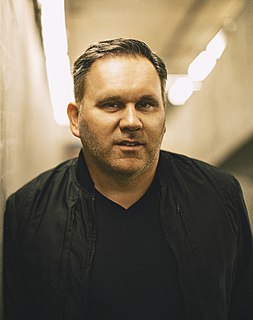A Quote by Gilbert K. Chesterton
We do not admire, we hardly excuse, the fanatic who wrecks this world for love of the other. But what are we to say of the fanatic who wrecks this world out of hatred of the other? He sacrifices the very existence of humanity to the non-existence of God. He offers his victims not to the altar, but merely to assert the idleness of the altar and the emptiness of the throne. He is ready to ruin even that primary ethic by which all things live, for his strange and eternal vengeance upon some one who never lived at all.
Quote Topics
Admire
All Things
Altar
Assert
Emptiness
Eternal
Ethic
Even
Excuse
Existence
Existence Of God
Fanatic
God
Hardly
Hatred
His
Humanity
Idleness
Live
Lived
Love
Merely
Never
Offers
Other
Out
Primary
Ready
Ruin
Sacrifices
Say
Some
Strange
Things
This World
Throne
Vengeance
Very
Victims
Which
World
Wrecks
Related Quotes
We dare not trim stones to make God an altar, for if we do we ruin everything. We would spend time bringing people to the altar and saying, "Look at those beautiful stones we trimmed!" We merely need to accept the work that God has done for us in Christ. The object of His restrictions is to help us see how wonderful He is and to spend the rest of our lives rendering true worship to Him.
The Devil would be the best way out as an excuse for God; in that way he would be playing the same part as an agent of economic discharge as the Jew does in the world of the Aryan ideal. But even so, one can hold God responsible for the existence of the Devil just as well as for the existence of the wickedness which the Devil embodies.
From the beginning, about the rude altar of the god, to the days of Goethe, of Leopardi, and of Victor Hugo, the poet is the leader in the dance of life; and the phrase by which we name his singularity, the poetic temperament, denotes the primacy of that passion in his blood with which the frame of other men is less richly charged.
In the beginning of his human life man was embryonic in the world of the matrix. There he received capacity and endowment for the reality of human existence. The forces and powers necessary for this world were bestowed upon him in that limited condition. In this world he needed eyes; he received them potentially in the other. He needed ears; he obtained them there in readiness and preparation for his new existence. The powers requisite in this world were conferred upon him in the world of the matrix.
Buddha wrote a code which he said would be useful to guide men in darkness, but he never claimed to be the Light of the world. Buddhism was born with a disgust for the world, when a prince's son deserted his wife and child, turning from the pleasures of existence to the problems of existence. Burnt by the fires of the world, and already weary with it, Buddha turned to ethics.
Love is very important in The First Man, in that [Albert] Camus loves these things he never chose, he loves his childhood experience in a very real way. Their poverty meant that there was nothing else they could think about but what they would eat, how they would clothe themselves. There's just no room for other things in his family. It's difficult for others to imagine the position in which he found himself. There is no imaginary existence in their lives.
I love to say that not only is the throne room of God a place of reverence, it's always a place of refuge. So when everything else in life seems to be shifting, or breaking and shaking apart, there's a place that is always stable, safe, and constant. When we draw near to God in worship, and approach His throne, we tap into that. It's a very re-assuring place, where we're reminded that there's a God on His throne, and even when we don't understand everything, we can trust it to Him.
The only cross in all of history that was turned into an altar was the cross on which Jesus Christ died. It was a Roman cross. They nailed Him on it, and God, in His majesty and mystery, turned it into an altar. The Lamb who was dying in the mystery and wonder of God was turned into the Priest who offered Himself. No one else was a worthy offering.




































